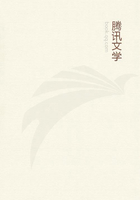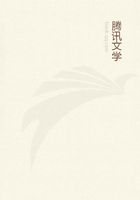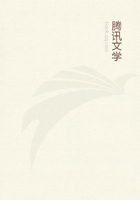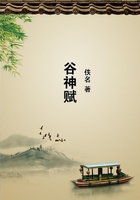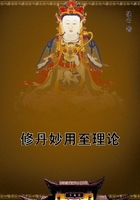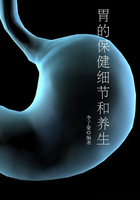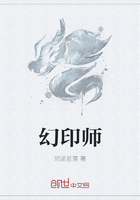How the Fools shouted the Wise Men down Thus, like a fertile country flooded with mud, England showed no sign of her greatness in the days when she was putting forth all her strength to save herself from the worst consequences of her littleness. Most of the men of action, occupied to the last hour of their time with urgent practical work, had to leave to idler people, or to professional rhetoricians, the presentation of the war to the reason and imagination of the country and the world in speeches, poems, manifestoes, picture posters, and newspaper articles. I have had the privilege of hearing some of our ablest commanders talking about their work; and I have shared the common lot of reading the accounts of that work given to the world by the newspapers. No two experiences could be more different. But in the end the talkers obtained a dangerous ascendancy over the rank and file of the men of action; for though the great men of action are always inveterate talkers and often very clever writers, and therefore cannot have their minds formed for them by others, the average man of action, like the average fighter with the bayonet, can give no account of himself in words even to himself, and is apt to pick up and accept what he reads about himself and other people in the papers, except when the writer is rash enough to commit himself on technical points. It was not uncommon during the war to hear a soldier, or a civilian engaged on war work, describing events within his own experience that reduced to utter absurdity the ravings and maunderings of his daily paper, and yet echo the opinions of that paper like a parrot. Thus, to escape from the prevailing confusion and folly, it was not enough to seek the company of the ordinary man of action: one had to get into contact with the master spirits. This was a privilege which only a handful of people could enjoy. For the unprivileged citizen there was no escape. To him the whole country seemed mad, futile, silly, incompetent, with no hope of victory except the hope that the enemy might be just as mad. Only by very resolute reflection and reasoning could he reassure himself that if there was nothing more solid beneath their appalling appearances the war could not possibly have gone on for a single day without a total breakdown of its organization.
The Mad Election Happy were the fools and the thoughtless men of action in those days. The worst of it was that the fools were very strongly represented in parliament, as fools not only elect fools, but can persuade men of action to elect them too. The election that immediately followed the armistice was perhaps the maddest that has ever taken place. Soldiers who had done voluntary and heroic service in the field were defeated by persons who had apparently never run a risk or spent a farthing that they could avoid, and who even had in the course of the election to apologize publicly for bawling Pacifist or Pro-German at their opponent. Party leaders seek such followers, who can always be depended on to walk tamely into the lobby at the party whip's orders, provided the leader will make their seats safe for them by the process which was called, in derisive reference to the war rationing system, "giving them the coupon." Other incidents were so grotesque that I cannot mention them without enabling the reader to identify the parties, which would not be fair, as they were no more to blame than thousands of others who must necessarily be nameless. The general result was patently absurd; and the electorate, disgusted at its own work, instantly recoiled to the opposite extreme, and cast out all the coupon candidates at the earliest bye-elections by equally silly majorities. But the mischief of the general election could not be undone; and the Government had not only to pretend to abuse its European victory as it had promised, but actually to do it by starving the enemies who had thrown down their arms. It had, in short, won the election by pledging itself to be thriftlessly wicked, cruel, and vindictive; and it did not find it as easy to escape from this pledge as it had from nobler ones. The end, as I write, is not yet; but it is clear that this thoughtless savagery will recoil on the heads of the Allies so severely that we shall be forced by the sternest necessity to take up our share of healing the Europe we have wounded almost to death instead of attempting to complete her destruction.
The Yahoo and the Angry Ape Contemplating this picture of a state of mankind so recent that no denial of its truth is possible, one understands Shakespeare comparing Man to an angry ape, Swift describing him as a Yahoo rebuked by the superior virtue of the horse, and Wellington declaring that the British can behave themselves neither in victory nor defeat. Yet none of the three had seen war as we have seen it. Shakespeare blamed great men, saying that "Could great men thunder as Jove himself does, Jove would ne'er be quiet; for every pelting petty officer would use his heaven for thunder:
nothing but thunder." What would Shakespeare have said if he had seen something far more destructive than thunder in the hand of every village laborer, and found on the Messines Ridge the craters of the nineteen volcanoes that were let loose there at the touch of a finger that might have been a child's finger without the result being a whit less ruinous? Shakespeare may have seen a Stratford cottage struck by one of Jove's thunderbolts, and have helped to extinguish the lighted thatch and clear away the bits of the broken chimney. What would he have said if he had seen Ypres as it is now, or returned to Stratford, as French peasants are returning to their homes to-day, to find the old familiar signpost inscribed "To Stratford, 1 mile," and at the end of the mile nothing but some holes in the ground and a fragment of a broken churn here and there? Would not the spectacle of the angry ape endowed with powers of destruction that Jove never pretended to, have beggared even his command of words?

